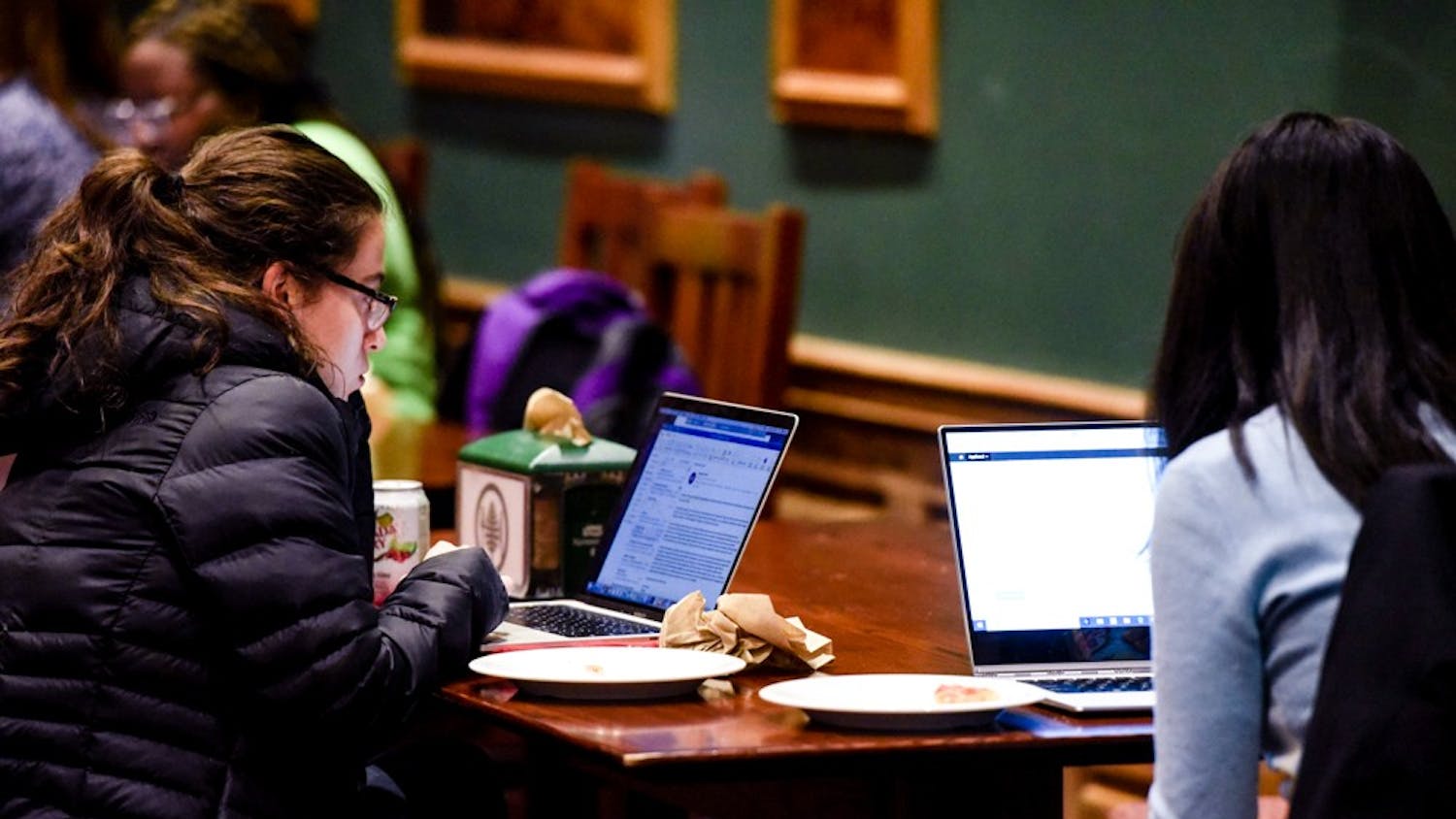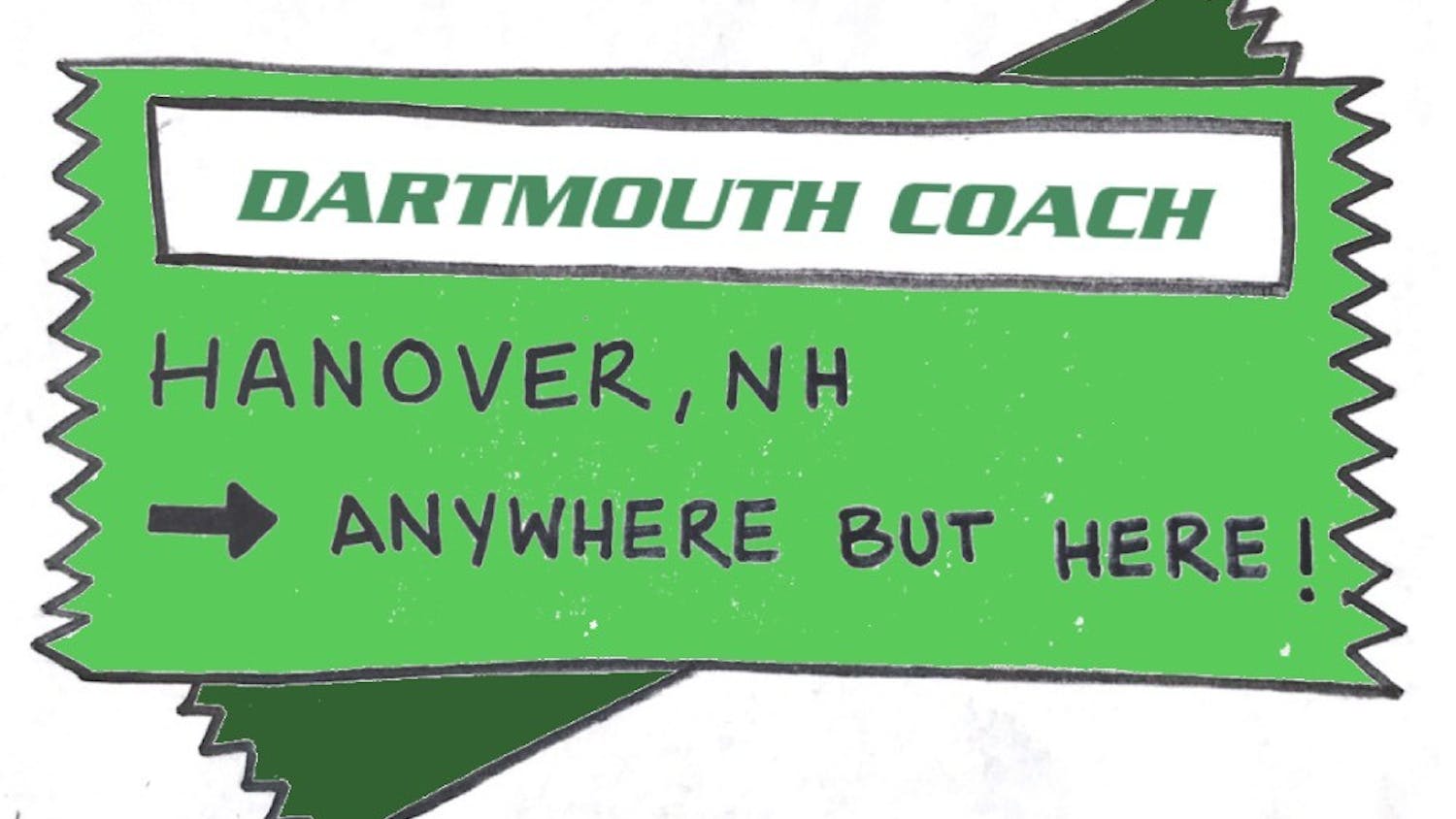COVID-19 put an end to spring and summer study abroad programs. Dartmouth students who once dreamed of wandering through Tokyo or Toulouse now dream of leaving the house. For the Class of 2019, 42 percent of students participated in a language study abroad or foreign study program. In light of the pandemic, that percentage seems destined to go down for current students. But a handful of students already know that they will not be part of that statistic — pandemic or not.
When she was applying to colleges, Grace Qu ’22 looked at study abroad programs as an important deciding factor. She found Dartmouth’s faculty-led model — distinct from an ordinary transfer program — especially appealing. Heading into college, Qu planned on attending an LSA or FSP during her four years at Dartmouth.
When she got to campus, though, Qu felt intimidated by the rigor of Dartmouth classes. She said that it took her two terms to adjust to the pace of academic life, and in the meantime she had little time to think about anything else. By her freshman winter, she had already missed the first round of study abroad applications.
Three months later, Qu got an email encouraging her to apply for one of the remaining spots on the art history FSP in Rome. She heard from upperclassmen that emails like that meant guaranteed acceptance, so she went ahead and applied. When she was offered a spot on the FSP for her sophomore spring, she was excited at first, but she began to have second thoughts and debated dropping out of the program. She decided to take a prerequisite course in art history in the fall to see how she liked it. She quickly realized that the subject was not for her.
“I decided, ‘I can’t do this anymore. I can’t take three classes in a term, all art history,’” Qu recalled. “I wasn’t as interested in the subject as I thought I was.”
Qu decided to major in engineering, and after planning out all her courses, she realized that she had no room for a study abroad program. Besides, she no longer felt that there was a program that interested her. The Thayer School of Engineering only offers exchange programs, and she wasn’t compelled by the programs that other departments organized.
Rachna Shah ’21 also found herself prioritizing academic concerns over studying abroad. Shah entered Dartmouth on the pre-medicine track and was worried about fitting in all the requirements in four years so that she could take the MCAT by a certain time. During her sophomore summer, she dropped pre-med and shifted to an economics major. Managing the transition made it difficult to think about study abroad programs.
Shah said that she tries not to think about how she may have missed out on an exciting opportunity. She mentioned that she talked with recent graduates who said that they are able to gain a similar experience through traveling for work.
“Even if I don’t travel abroad right now, it’s not necessarily limiting,” Shah said. “I’ll be able to do it in the future, too. I don’t have to do it all now.”
Sofie Blahova ’22 is in a very different situation. As an international student from the Czech Republic who had been to New Zealand for an exchange program, Switzerland for language study and London for rowing, she entered Dartmouth as a study abroad veteran.
Blahova found Dartmouth’s LSAs and FSPs to be too strictly organized. She figured that the costs outweigh the benefits and would simply not be worth it.
“[The programs offer] nothing that would be so new for me that I would [be willing to] go through the application process, be stressed about money because of financial aid and be stressed about subletting my apartment,” Blahova said.
Rosa Mendoza ’20 also cited financial concerns, saying that financial aid doesn’t cover everything. Many of Dartmouth’s off-campus programs come with an additional fee. For students on financial aid, half of the extra cost is met with additional Dartmouth scholarship and the other half with a student loan. This means students often need to purchase their own plane tickets and meals, though the College does occasionally provide travel assistance.
“[I have] some friends who studied abroad and didn’t get all the help they needed,” Mendoza said. “So that was always on my mind, just being cautious of how I spent my money during my time in college.”
However, the primary reason Mendoza never studied abroad was because she had trouble fitting any program into her D-Plan. She withdrew from one of her pre-med courses freshman year and had to retake it, which pushed other required courses back. She said that as much as the D-Plan can make a study abroad possible, it can also make it more difficult.
“If you miss that application period, or you have to take a certain course that term, then you [are out of] luck,” Mendoza noted.
The D-Plan opens up possibilities, but it can also make the college experience feel prescriptive. Students busy themselves with planning major requirements, internships, LSAs and FSPs in the hopes that by the time graduation rolls around, they will have experienced a true “Dartmouth education.”
In the middle of a pandemic, it’s hard not to think about what could have been. Mendoza, however, maintains a positive outlook. She feels happy for her friends who got to study abroad and doesn’t feel particularly sad that she didn’t get that same opportunity.
“It just wasn’t in the cards for me,” Mendoza said.
Qu and Shah are former members of The Dartmouth staff.




